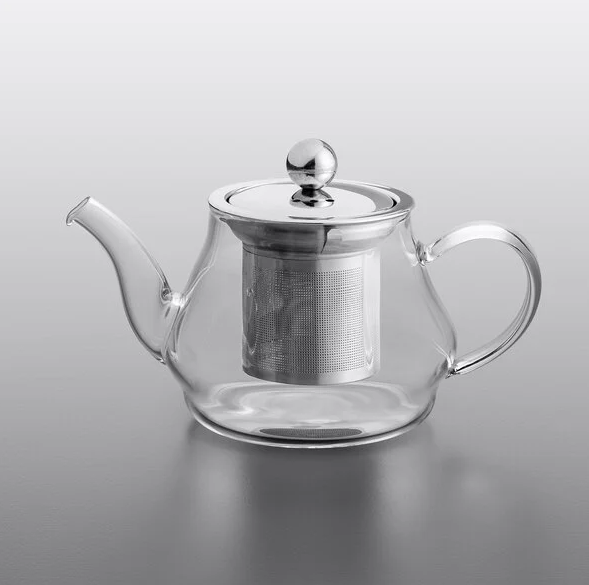10 Best Teas for Headaches
When you are having a terrible headache, making a cup of tea may be your priority. But some teas may actually help. Find out what are the best teas for headache and migraine relief.
![]()
[1] https://www.ncbi.nlm.nih.gov/pmc/articles/PMC4590146/ [2] https://www.ncbi.nlm.nih.gov/pmc/articles/PMC7468766/ [3] https://www.health.harvard.edu/blog/if-you-have-migraines-put-down-your-coffee-and-read-this-2019093017897 [4] https://pubmed.ncbi.nlm.nih.gov/23657930/ [5] https://www.researchgate.net/publication/321006936_Herbal_medicine_and_migraine [6] https://www.ncbi.nlm.nih.gov/pmc/articles/PMC3210009/ [7] https://www.ncbi.nlm.nih.gov/pmc/articles/PMC3210009/ [8] https://www.ema.europa.eu/en/documents/herbal-report/superseded-assessment-report-mentha-x-piperita-l-folium_en.pdf [9] https://www.encyclopedia.com/plants-and-animals/plants/plants/peppermint [10] https://www.researchgate.net/publication/224769723_Lavender_Essential_Oil_in_the_Treatment_of_Migraine_Headache_A_Placebo-Controlled_Clinical_Trial [11] https://core.ac.uk/download/pdf/82355502.pdf [12] https://europepmc.org/article/med/25238714 [13] https://www.researchgate.net/publication/321006936_Herbal_medicine_and_migraine [14] http://www.aloki.hu/pdf/1706_1335513369.pdf [15] https://www.ncbi.nlm.nih.gov/pmc/articles/PMC7491497/
How can tea soothe a headache?
Headache can be defined as a pain in the head and neck, caused by different health problems or environmental factors such as loud noise, infections, stress, even dehydration. There are different types of headaches and there is not a single person who hasn’t experienced at least one or few during their life. Some of them may be less serious and easily treatable, while others may be a symptom of a serious health condition. They are two groups of headaches – primary and secondary. Primary headaches are tension headaches, cluster headaches and migraines,[1] while secondary headaches appear as a symptom of some other disease or condition, such as dehydration[2] or common cold. Before deciding to treat your headache with tea, it’s important to know what kind of headache you are having. For example, headache caused by dehydration may be treated with re-hydrating yourself with fluids, including tea. For headaches caused by common cold or those caused by stress you may also find relief in a cup of tea. But serious headaches caused by serious underlying problems should not be treated at home.Disclaimer: This article is for informational purposes only. It’s not intended to replace medical advice, diagnosis or treatment. Every person is different and may react to different herbs and teas differently. Never use teas or herbs to treat serious medical conditions on your own. Always seek professional medical advice before choosing home remedies.
10 Best Teas for Headache Relief
If you are sure your headache is not a sign of a more serious health problem, you can try reducing the headache pain with tea. For example, teas may help with tension headaches, headaches caused by dehydration, headaches caused by stress or inflammation. Some herbal teas may help you relax, all the caffeine free teas will help you re-hydrate, and some are great to help reduce inflammation. While there’s still not enough evidence for all traditional uses of thousands of plants and herbs, you may expect benefit from teas that offer calming and soothing properties such as rose, jasmine, lavender, chamomile and similar teas, or teas that offer analgesic activity such as turmeric, cloves, ginger or feverfew. For example, jasmine, one of the most popular flowers for scenting green tea, is famous for its incredible aroma and may help relieve stress. And stress may be the cause of tension headache.1. Green Tea
Green tea is made from Camellia sinensis plant. The same plant is used for making all other types of tea, white, yellow, oolong, dark and black tea. Camellia sinensis is naturally caffeinated, which means all real teas will contain caffeine. Caffeine is a stimulant that may be both good and bad, depending on how and when you use it. What’s really interesting about caffeine is that it may actually help with pain relief, especially with headaches and migraines. Caffeine is an active ingredient in many drugs used for treating headaches, but you can get it from a cup of tea too. However, there’s a contradictory part too. It may also be a source of your headache. Studies showed that too much caffeine may actually trigger a headache. In the same way, excluding caffeine suddenly from your diet may cause a withdrawal headache[3].2. Ginger
Few teas are as versatile as ginger tea. Today, ginger is one of the most common ingredients in the kitchen and available from almost any supermarket. Studies suggest that ginger tea may be as efficient as regular medicine for treating acute headache. The best part? It may cause less side effects[4] than regular drugs. The effective dose for treating headache pain is a cup of tea made with 2-3 grams of ginger root at the start of the migraine headaches, and one more if the migraine symptoms are still present 2 hours later[5].3. Feverfew
Feverfew or Tanacetum parthenium may not be your regular cup of tea, but traditionally it may be one of the best natural remedies for treating headaches, migraines and different types of pain[6]. It belongs to a daisy botanical family, and while it’s not widely available, it’s been studied for its headache relieving properties more than many other herbs. It may help with both prevention and treatment and may help with “classical migraine, cluster headaches, premenstrual, menstrual, and other headaches”[7].4. Peppermint
Both peppermint tea and peppermint oil have been used for treating headaches for centuries. The first mention of peppermint water being used for headache relief was in 1902.[8] Peppermint oil has been used topically even longer[9].5. Lavender
Lavender is used similarly to peppermint, either as tea made with steeping lavender flowers in boiling water, or topically in the form of an essential oil. Inhaling lavender essential oil may help relieve acute headache and migraine too[10].6. Rhodiola
Rhodiola, an important adaptogenic plant is used for not only treating headaches, but reliving stress, anxiety and depression. Adaptogenic plants are popular for their ability to reduce stress naturally and help with different stress-related issues.7. Chamomile
Chamomile, or more precisely, German chamomile or Matricaria recutita, may help with migraine relief too. It's been used traditionally for its calming and soothing properties. Both chamomile tea made from dried chamomile flowers[11] and topical application of essential oil may provide pain relief[12].8. Gingko
Studies showed gingko may be a promising plant in preventing, rather than treating headaches. In several trials, gingko helped either reduce the frequency of migraines or remove them completely for most of the participants[13].9. Chrysanthemum
Chrysanthemum tea may not be as widely available and popular in western countries, but it’s indeed packed with benefits. In the Traditional Chinese Medicine, chrysanthemum has been used for treating headaches and other pain relief for many years[14]. It tastes incredibly delicious too, with fresh, slightly floral and sweet flavors.10. Rosemary
Rosemary, a popular aromatic culinary herb, has many potential health benefits. It may be helpful for nervous system disorders such as anxiety, but it may also provide analgesic activity and boost memory. In traditional medicine, it’s often used for treating headaches and migraines[15].References:
[1] https://www.ncbi.nlm.nih.gov/pmc/articles/PMC4590146/ [2] https://www.ncbi.nlm.nih.gov/pmc/articles/PMC7468766/ [3] https://www.health.harvard.edu/blog/if-you-have-migraines-put-down-your-coffee-and-read-this-2019093017897 [4] https://pubmed.ncbi.nlm.nih.gov/23657930/ [5] https://www.researchgate.net/publication/321006936_Herbal_medicine_and_migraine [6] https://www.ncbi.nlm.nih.gov/pmc/articles/PMC3210009/ [7] https://www.ncbi.nlm.nih.gov/pmc/articles/PMC3210009/ [8] https://www.ema.europa.eu/en/documents/herbal-report/superseded-assessment-report-mentha-x-piperita-l-folium_en.pdf [9] https://www.encyclopedia.com/plants-and-animals/plants/plants/peppermint [10] https://www.researchgate.net/publication/224769723_Lavender_Essential_Oil_in_the_Treatment_of_Migraine_Headache_A_Placebo-Controlled_Clinical_Trial [11] https://core.ac.uk/download/pdf/82355502.pdf [12] https://europepmc.org/article/med/25238714 [13] https://www.researchgate.net/publication/321006936_Herbal_medicine_and_migraine [14] http://www.aloki.hu/pdf/1706_1335513369.pdf [15] https://www.ncbi.nlm.nih.gov/pmc/articles/PMC7491497/
More from:
SLL




Leave a comment